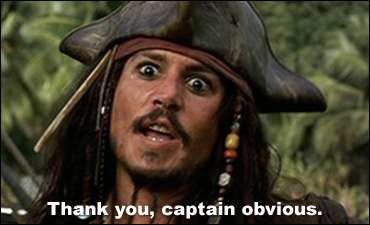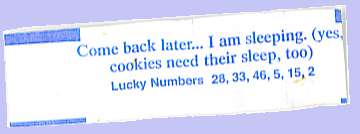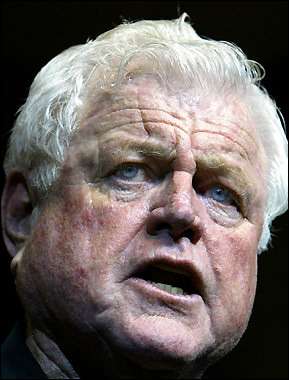I was notified by bulk e-mail of a new article in Ziff-Davis, a name which I have come to associate with quality musings on state-of-the-art technical developments for twenty years now. I do not remember how my address came to be added to the broadcast list; it’s intended for Information Technology geeks as well as healthcare professionals, and I have been both of those. Unfortunately, there is very little in the article having to do with leading-edge technology. In fact, it appears to be written up to provide a service, not to those who would read it, but to someone, somewhere, who wants it written-up.
Health insurance provider Aetna hopes to use the Internet to make doctors and nurses more culturally sensitive.
The company on Nov. 17 announced that clinicians who are part of the Aetna network or who have filed a claim with the insurer can take online courses in cross-cultural care for free.
The online course is part of a suite of other resources for ethnically diverse populations, including a training video as well as multiple brochures in Spanish that cover issues from diabetes and patient safety. Physicians and nurses who complete the training receive credit toward their continuing education requirements.
Several studies have found that minorities receive worse care than white patients, even if differences in severity of disease and income disparities are considered. Separate studies have found that patients who are better-trained in self care actually do take better care of themselves and are less likely to require more expensive treatments and hospitalizations. However, both initial diagnosis and subsequent counseling by clinicians are less effective if they do not account for cultural factors, such as attitudes toward accepting help, traditional medicines and reporting problems, according to the studies.
Now, one of the things that gave me some initial confusion was this fairly unpolished passage which seeks to assert “minorities receive worse care than white patients“. It was not so long ago that I was being treated to a feast of articles boasting that, boom chucka lucka lucka, “whites” have become, or are about to become, a minority themselves in urban areas in the United States. Here it is a few years after that, and even in the most PC article celebrating one of the most PC events, generously sprinkled with all the PC platitudes, “white” and “minority” are still thought to be antonymous terms.
Well, the population-shift information seems to be genuine in substance as well as in the ramifications involved, so it’s clear to me we’re turning some kind of corner here. So I thought before I read too much meaning into the word “diverse” I should go look it up…as usual, in Wikipedia, the online encyclopedia anyone can edit. And boy, what an eye-opener I found there. Seemed like a great idea to record it for posterity. It may not be up there too much longer.
The term “diversity” has no fixed definition upon which sociologists can agree. The term was used by the Supreme Court in the original decision regarding Affirmative Action in the 1970s. Thus, it has been tied to Affirmative Action, and could be considered a legal term, but in recent years has been used more broadly in relation to Globalism. It has also replaced “multiculturalism” on college campuses in the US and assumed much of the same meaning.
Recently diversity has been used to justify recruiting international students or employees. In this context it could be more like eugenics, which is quite different and potentially the opposite of Affirmative Action. In Biology a natural ecosystem needs a diversity of life forms in part to support Evolution and the idea is extended to modern society. (Interestingly, many recent college Biology books use the word Diversity in their title.) This mixing of science and racial issues was common during the era when Eugenics was popular, and it appears to be making a come back. Like Affirmative Action the word Diversity appears to be non-controversial but is highly controversial, particularly if it is made to mean Eugenics. (Eugenics is associated with Nazism.) Of course, diversity has different meanings in other parts of the world where it does not have the same political history.
The term “diversity” is often used in conjunction with the term “tolerance” in liberal political creeds which support the idea that both are valuable and desirable. Many critics of diversity claim that in the political arena, diversity is a code word for forcing people to tolerate or approve people and practices with which they might not otherwise voluntarily associate. Other critics point out that diversity programs in education and business inherently emphasize some minority groups (e.g. blacks, Hispanics, and homosexuals) and do not give equal time to groups (e.g. Jewish immigrants, Filipinos, Asian-Americans, Roman Catholics, and European immigrants) which lack the “disadvantaged” label. These critics claim that “pluralism” is a more accurate term for the presence of variation, and that, under the banner of “diversity,” groups actually forbid criticism of groups that are, in essence, privileged by their minority status. Many politicians, such as Tony Blair, José Luis Zapatero and Gerhard Schröder have praised the ambiguous concept of diversity.
Supporters of the contention that “diversity” is a social goal worth sacrificing for hold that cultural diversity may aid communication between people of different backgrounds and lifestyles, leading to greater knowledge, understanding, and peaceful coexistence. However, modern critics of diversity counter that bringing people together in a forced way often results in some breakdown of social cohesion, especially when the perception exists that diversity goals take precedence over quality in hiring, contracting, and/or academic admissions.
“Diversity” is a confusing term in American politics since no single ethnic group can claim majority status in the United States. When the “Caucasian” label is broken down into its component parts, dramatic differences can be seen between those of Arab (including Egyptian, Lebanese, Syrian, and Palestinian), Celtic, Dutch, Armenian, German, Persian, Hebrew, and Eastern European descent, all of whom share the overly broad label of “Caucasian.”
In this political context, the word diversity is often differently understood outside of North America: for example in the UK and most parts of Europe, Asia, and Africa, the US concept of diversity does not wholly exist as there are few US-styled affirmative action programs. This is not to say that others are not supportive of the underlying agenda of US diversity, but it is usually described in different words, such as the terms “respect”, “tolerance” and “multi-culturalism.” “Respect for Diversity” is one of the six principles of the Global Greens Charter, a manifesto of Green parties from all over the world subscribed to.
In the US, diversity may be a euphemism for the inclusion of individuals or groups thereof who are not of European descent. For example, the National Football League’s “Diversity Committee” has imposed a mandate overtly favoring African Americans by fining organizations who do not interview enough African Americans for positions which have been historically dominated by whites. There is no such policy imposed for failure to ethnically diversify positions, such as wide receiver, running back, and defensive back, which are traditionally dominated by blacks. In other words, the “diversity committee” is concerned with coaches and coordinators, but not with positions that are nearly 100% black.
This use of “diversity” as a buzzword also extends to American academia, wherein an attempt to create a “diverse student body” typically supports the recruitment of African-American and Latino students, as well as women in such historically underrepresented fields as the sciences.
Recently the term “diversity” has been used to encompass a much wider range of criteria than merely racial or ethnic classifications. The term is now used to express dimensions of diversity such as age, gender, religion, philosophy, and politics.
It is hazardous to use such a loaded term in such a dynamic environment where the meaning of the term is subject to such rapid and meaningful change. “Diversity” is supposed to convey lots of positive implications, but the trouble is that the concept exists on multiple levels. And connections exist between those levels, so that these level-protuberances move together.
On a social level, “diversity” is a decidedly positive thing. On a purely linguistic level, it is not. It is decidedly nothing, except neutral. My dictionary says the word is supposed to address a plurality of things, and means “differing one from another.” And on an engineering level, it is a negative thing, or at the very least used to describe some sort of challenge that is supposed to be overcome. That is, after all, how the word is used in the ZD article — “the online course is part of a suite of other resources for ethnically diverse populations…”
 I’ve come to be highly suspicious of the word “diversity” and no, it isn’t because I’m a six-foot-tall sandy-haired white guy who’s straight and right-handed and possessing all ten fingers. All of which I am. No, the D-word should be promising me something, I figure. Where it is celebrated as something positive, I perceive it to represent a busting-out from the good-ol’-boy network. I have been seduced into believing that…perhaps…since it’s been quite a while, looking back, since anyone has strung together the words that would out-and-out promise such a thing. But I think most of us would agree, that’s supposed to be the implication. Diversity is a condition, or a goal, and where it is either one of those the status quo just isn’t going to fly. People will think outside of the box — or else they will be forced to. Diversity is, or should be, or is expected to be, antithetical to TTWWADI which means “That’s The Way We’ve Always Done It.” The diversification of a clientele, or any kind of audience, is an event by which it will become necessary and unavoidable that a different way will be found to do those things. That should have enormous appeal to people like me. White or not, I notice my contributions to any group endeavor decline steeply where TTWWADI is worshipped like the false god that it is. I’m one of those free-thinkers that isn’t so good at the TTWWADI thing.
I’ve come to be highly suspicious of the word “diversity” and no, it isn’t because I’m a six-foot-tall sandy-haired white guy who’s straight and right-handed and possessing all ten fingers. All of which I am. No, the D-word should be promising me something, I figure. Where it is celebrated as something positive, I perceive it to represent a busting-out from the good-ol’-boy network. I have been seduced into believing that…perhaps…since it’s been quite a while, looking back, since anyone has strung together the words that would out-and-out promise such a thing. But I think most of us would agree, that’s supposed to be the implication. Diversity is a condition, or a goal, and where it is either one of those the status quo just isn’t going to fly. People will think outside of the box — or else they will be forced to. Diversity is, or should be, or is expected to be, antithetical to TTWWADI which means “That’s The Way We’ve Always Done It.” The diversification of a clientele, or any kind of audience, is an event by which it will become necessary and unavoidable that a different way will be found to do those things. That should have enormous appeal to people like me. White or not, I notice my contributions to any group endeavor decline steeply where TTWWADI is worshipped like the false god that it is. I’m one of those free-thinkers that isn’t so good at the TTWWADI thing.
That’s the promise — by implication, if by no other means. And yet, that isn’t the way things work out. When the rubber meets the road, wherever people talk about diversity and other related glittery terms, you can be sure TTWWADI reigns supreme. Part of the reason for this, it seems, is that management is in a state of perpetual confusion about what “diversity” is supposed to mean. There’s an awful lot of urgency involved in broadcasting the cosmetics of it, almost as a market device — “we honor and respect diversity here!” — and that has a lot of value for upper-management. I’m using “upper-management” as pejorative term there…the layer of management that is sufficiently high up, so as to avoid actual work, or contact with those who do the actual work. In those enclaves, the middle-managers and lower-managers who are more concerned with day-to-day meeting of objectives, have the attitude of, yeah, oh well, whatever.
It’s the philosophical separation between the two, I’ve learned, that helps to promote an environment of TTWWADI and stifles creativity. When the managers who are closest to the work, begin to distance themselves from that feeling of ownership, they become actors instead of managers. It seems to be unavoidable. They start to re-define their own jobs downward, evaluating themselves based on their execution of “correct” steps rather than on their successes. The two words “supposed to” start to fuse into a singularity, which is common in such situations: “We aren’t going to do it that way because you aren’t supposeda.” “When you do this, you’re supposeda do that.”
Such middle-managers probably don’t go home and start handling their own stuff this way, especially when it comes to spending money on goods and services. When resources are scares, the goals are personal, and success is within reach but still a good distance away, “supposeda” goes flying right out the window. When you go to work and your whole job is all about “supposeda” and not an awful lot else, it negates the feeling of ownership. You don’t act, in corporate parlance, like you “own the company” anymore. Your job is no longer to ensure success, but instead, to guarantee that if & when failure does arrive it isn’t your fault.
And at that point any of the benefits to “diversity,” whether they were promised outright or merely imagined, are effectively blocked. Not only have they not materialized; they no longer can. You aren’t functioning, anymore, in an environment where people think outside the box — or at least, are rewarded for doing so.
Another problem with diversity, or rather, what we call that: It is negative. It is hostile. The Wiki article quoted above makes a rather thorough point of this, probably in violation of the online encyclopedia’s neutral-point-of-view policy:
In the US, diversity may be a euphemism for the inclusion of individuals or groups thereof who are not of European descent. For example, the National Football League’s “Diversity Committee” has imposed a mandate overtly favoring African Americans by fining organizations who do not interview enough African Americans for positions which have been historically dominated by whites. There is no such policy imposed for failure to ethnically diversify positions, such as wide receiver, running back, and defensive back, which are traditionally dominated by blacks. In other words, the “diversity committee” is concerned with coaches and coordinators, but not with positions that are nearly 100% black.
One of my favorite challenges to this, has been to ask the following hypothetical: You manage a staff of four, all of whom happen to belong to a minority group. Two of your staff quit, and you end up replacing them with two six-foot straight right-handed white guys. What did you do to the “diversity” of your group? Did you increase the diversity, decrease it, or did you keep it the same?
Nobody who had the true meaning of the term in mind, would dare say you “decreased” the diversity of your group; but in the accepted contemporary meaning of this intangible noun, that is exactly what we are supposed to say you did. If you accept that, then necessarily, you have to accept that diversity has come to mean an absence of white guys. To argue against that, is to argue in favor of the traditional meaning of the word…the mathematical meaning, you might say. The dictionary definition. Which would logically determine that when you hired the white guys, you increased the diversity of the group. Well, I don’t see anyone, anywhere, using the word “diversity” that way.
Eugenics? That seems to be taking the concern a bit far. Nazis? That’s even more questionable. I don’t think we’re in the process of herding white people into concentration camps. But let’s be clear: What we have come to call “diversity” is, without a doubt, a racial term. It applies to race. And it applies differently to some races than to others. It has something to do with being self-policing…your racial makeup becomes too white, and you aren’t going to need an outside entity to point it out to you. You’re making a promise to wake up, on your own, and say “Hey! We’re too white! We gotta do something.” On whether this applies to being too — something else — nobody has made any pledges anywhere, let alone lived up to them. Nobody claims to discipline their own organization, to keep it from becoming too this-or-that, too female, too Spanish-speaking. Actually, if they did make such a promise, I’m gathering that would be an affront to what we call “diversity.” So, yes, it’s an anti-white thing. We accept this. We just don’t talk about it much.
The third problem I have with what we call “diversity” is that it is bathosplorific. It seeks accolades for exploration but exploration has to do with conquering previously unimagined and unexplored frontiers. Exploration is exponential and has to do with expanding things. To engage in a process of removing what might be offensive, is a sterilization process and where it is concerned with movement at all, it has to do with movement inward. The dichotomy reminds me of the South Park episode “Mr. Hanky The Christmas Poo” where the Mayor promises to “put together a crack team of my best workers to make sure this will be the most non-offensive Christmas ever!” When did Guinness start that entry, and who the hell ever asked for it? There is a huge difference between saying “such-and-such a Christmas display offends me”…which we hear quite often nowadays…and saying “I’ll be sure to remember whoever can put on the most non-denominational and non-offensive Christmas ever” which is something we don’t hear at all.
I coined the term “bathosploration” to point out the fundamental difference between laboring in perpetuity toward a superlative and laboring in perpetuity toward an ideal. We have a tendency which is instinctive, to remember people who achieve things in the direction of a superlative. Columbus discovered such-and-such a continent, so-and-so walked on the moon, this guy was X many feet & inches tall. Breaking records. When you endeavor toward an ideal you can break records too. But we don’t remember accomplishments like those, and there’s a good reason why. At some point, they are guaranteed to become trivial and counterproductive. Guaranteed.
Now as we engage in the more glorious objective of laboring toward superlatives, the labor toward an ideal may be tied into this. One example that comes to mind, would be a faster car. Last year’s model might have gone 204mph, maybe you can get this year’s model to go 207mph. That would be exploration…expanding…innovating upward instead of downward. At two hundred mph, the wind resistance is enormous, so an important contribution toward increasing the maximum speed would be changing the aerodynamic drag. We’re at 0.29, maybe we can get it to 0.28. That is laboring in perpetuity toward an ideal. The ideal would be zero, which is logically impossible, but we can certainly get closer and closer to it. Just like the South Park Mayor trying to come up with the “most non-offensive Christmas ever.” Always some room to make it a little less offensive than before, right? So sometimes, laboring toward a standard of purity, is a prerequisite to laboring elsewhere toward a new frontier…breaking a new record.
In such situations, though, the trudging-toward-zero is a means-to-an-end. It is decidedly subservient to the opposite trudging-toward-infinity…the effort to break the speed record, and go upward from where we were before.
In what we have come to call “diversity,” the endeavoring toward the ideal, becomes an end in itself and this is what makes it bathosplorific. What we’re trying to accomplish by being diverse, is never quite spelled out, nor can it be. It has something to do with equal opportunity regardless of race — although due to the other matters explained above, plainly, it isn’t that. And it’s certainly competitive. My department may be more diverse than it was before; but your department may be more diverse than mine, and if that’s the case, whatever gains I’ve managed to make my department diverse, don’t mean a whole lot. To recapture the meaning of diversity, I have to diversify my department to an extent greater than yours. And if/when I manage to achieve that, the diversity in your department will come to be effectively meaningless.
So although it is competitive, it is doomed, like all bathosplorific efforts, to triviality and wheel-spinning. You can get only so “diverse,” which means no two people have the same (or similar) backgrounds if we’re talking dictionary-diversity, or there are absolutely no white guys if we’re talking real-world diversity. Whatever your definition is once you sort out all the confusion, there’s some point where the struggle must end — at zero. Once you’re there, if you want to do an even better job next year, what exactly do you do? There’s no good answer to that, and that’s what makes it bathosplorific. Diversity may want all the credit of being an explorative, record-setting enterprise; but it’s an enterprise of getting rid of things, not of setting wildly extravagant goals and then reaching them. In short, it’s a process of destruction and not creation. It’s a process of sterilization. And nobody ever achieved anything with that, other than to avoid getting fat, dirty or sick. That’s about all.









 Ah, now
Ah, now 
 But I’m not above
But I’m not above 
 …but fellow blogger
…but fellow blogger  Gloria Allred, who seems to be steadfastly opposed to doing anything with her law degree that would make some sort of sense,
Gloria Allred, who seems to be steadfastly opposed to doing anything with her law degree that would make some sort of sense,  I’ve come to be highly suspicious of the word “diversity” and no, it isn’t because I’m a six-foot-tall sandy-haired white guy who’s straight and right-handed and possessing all ten fingers. All of which I am. No, the D-word should be promising me something, I figure. Where it is celebrated as something positive, I perceive it to represent a busting-out from the good-ol’-boy network. I have been seduced into believing that…perhaps…since it’s been quite a while, looking back, since anyone has strung together the words that would out-and-out promise such a thing. But I think most of us would agree, that’s supposed to be the implication. Diversity is a condition, or a goal, and where it is either one of those the status quo just isn’t going to fly. People will think outside of the box — or else they will be forced to. Diversity is, or should be, or is expected to be, antithetical to
I’ve come to be highly suspicious of the word “diversity” and no, it isn’t because I’m a six-foot-tall sandy-haired white guy who’s straight and right-handed and possessing all ten fingers. All of which I am. No, the D-word should be promising me something, I figure. Where it is celebrated as something positive, I perceive it to represent a busting-out from the good-ol’-boy network. I have been seduced into believing that…perhaps…since it’s been quite a while, looking back, since anyone has strung together the words that would out-and-out promise such a thing. But I think most of us would agree, that’s supposed to be the implication. Diversity is a condition, or a goal, and where it is either one of those the status quo just isn’t going to fly. People will think outside of the box — or else they will be forced to. Diversity is, or should be, or is expected to be, antithetical to 

 Blogger friend Buck
Blogger friend Buck  “Americans are working harder than ever, but millions of hardworking men and women across the country aren’t getting their fair share,” Kennedy said during a speech outlining his legislative agenda for next year. “We’re not rewarding work fairly anymore, and working families are falling behind.”
“Americans are working harder than ever, but millions of hardworking men and women across the country aren’t getting their fair share,” Kennedy said during a speech outlining his legislative agenda for next year. “We’re not rewarding work fairly anymore, and working families are falling behind.” We have a lot of businesses that have been self-positioned to make handsome profits off this mental weakness, but a mental weakness is what it is, and there’s nothing desirable about it. It is rooted not in psychological injury or lack of sanity, but simple immaturity. This is the kind of situation parents are supposed to help prevent.
We have a lot of businesses that have been self-positioned to make handsome profits off this mental weakness, but a mental weakness is what it is, and there’s nothing desirable about it. It is rooted not in psychological injury or lack of sanity, but simple immaturity. This is the kind of situation parents are supposed to help prevent. I don’t know it for sure and I have no way of testing it. But I’m thinking if, somehow, I could become acquainted with all the Hollywood celebrities I’ve ever seen in a movie, getting to know each one of them as a human being,
I don’t know it for sure and I have no way of testing it. But I’m thinking if, somehow, I could become acquainted with all the Hollywood celebrities I’ve ever seen in a movie, getting to know each one of them as a human being,